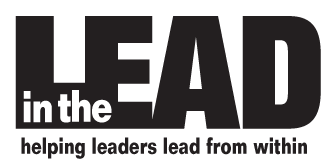Are you coachable?
We often blurt out this phrase in frustration when we struggle to learn something new, such as golf, chess, or woodworking. Yet the truth is most of us can learn most things, given time, competent instruction ,and some reasonable feedback about how we’re doing.
Being coachable means being eager and open to seek, receive, and implement feedback and insight from others. Most people love to help others prosper and grow, but they might be hesitant to provide feedback when they do not perceive openness. We all need feedback to be more effective. Responding favorably to the feedback you receive allows other’s suggestions and perspectives to be an open, helpful and engaging process. People who are open to being coached:
Constantly look for ways to improve their approach to work, and are interested in seeking feedback from others to aid in personal improvement.
Seek feedback, even when they know it may be difficult or critical
Bring a calm demeanor to a coaching conversation, using strong listening and reflecting skills to paraphrase what was said.
Show gratitude to those who provide feedback by thanking them.
Follow up with those who provided the feedback over time to inquire about their progress.
Many leaders wonder if they should engage a coach in their own development. Before making that investment, however, they should consider whether they are open to insight from others and ready to receive both favorable and developmental feedback.
Develop your coachable muscle by:
Responding productively when receiving feedback. Take a deep breath. Monitor and restrain any non-verbal signs of being uncomfortable or defensive. Give it your full attention. Take notes. Ask, “Can you tell me more?” Remember, you don’t have to accept everything that is said. Show interest in hearing what others have to say, then consider what to act upon.
Developing a habit for self-awareness. Strive for full self-awareness: the good, the bad, and the ugly. Gain insight on your strengths and opportunities for development by seeking feedback from others. Include skills, emotions, values, performance, attitudes and biases. Ask about the impact you have on others. Ask others, “What happens because of me?” Avoid dwelling on the extremes. Track progress in your personal development plan.
Ensuring you understand the feedback that you received. It is not uncommon to leave a feedback session not truly understanding all that was said. Before leaving, paraphrase what you heard to check for understanding. “I’m hearing you say…” Then follow-up with, “Is that correct?” Ask questions if you’re unclear. Listen and take notes.
Receiving coaching from the right people. Not everyone has your best interests at heart. Our parents or even grandparents may be out of touch with your market, even though they care deeply about your success, argues Adam Grant in his recent column in the NY Times entitled, We Get, and Give Lots of Bad Advice, Here’s How to Stop It.. Seek out those most knowledgeable, rather than just those who may be accessible, for insights and advice. Better yet, engage a professional coach who is truly impartial and will ask insightful questions to help you discover the options that are personally most compelling.
